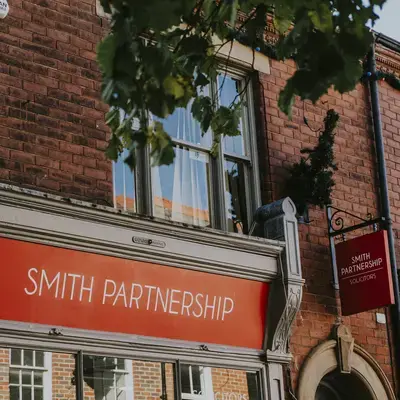
Letter Before Action and Letter of Claim
If you’re seeking to recover a debt that is owed to you by another business, initiating the legal debt recovery procedure by issuing a Letter Before Action can get you paid.
What is a Letter Before Action?
A Letter Before Action (LBA) is a way to formally demand a debt to be paid. This is a letter that is legally required before issuing a Claim in the Court. The letter must include:
- The amount of the outstanding sum
- The date it was due
- The amount of any accumulated interest
- The amount of any late payment compensation
- Details regarding the agreement under which the debt is payable
- The method of payment to be made
- Address the payment is to be sent to
- A deadline for payment (usually 7 days)
Letters should be sent by post, to the last known address of the debtor or the company registered address. To add an extra level of security to your potential claim, we send the letter before action by both post and email.
Upon receiving a Letter Before Action, the debtor will usually have seven days to respond or make the payment. This deadline should also be made clear in the letter.
The Letter Before Action is a requirement as evidence of the final communication between both parties regarding the debt, before legal proceedings can take place.
When should I issue a Letter Before Action?
It’s important that before a Letter Before Action is issued, you have attempted to engage with amicable conversation with your debtor. This should include emails and less formal letters, which are followed up by a phone call.
In a lot of cases, this is enough to resolve an unpaid debt. However, if a payment is still outstanding, a Letter Before Action can be sent.
What happens after a Letter Before Action is sent?
The Letter Before Action is the final communication before legal proceedings commence. After the due date as set out in the LBA has passed and no payment has been made, the next stage of the debt recovery procedure is issuing a County Court Claim. Following that, if you are successful at a trial, you will be able to obtain and enforce a County Court Judgement (CCJ).
What is a Letter of Claim?
A Pre-Action Protocol for debt claims came into force on 1 October 2017. This will apply to you if you are a business (including sole traders and public bodies) claiming payment from an individual (including a sole trader). The protocol does not apply to business-to-business debts unless the debtor is a sole trader. The letter of claim has differing requirements from the letter before action.
The Letter of Claim or LOC is a letter to the debtor from the creditor or their representative which is a request for payment.
The letter of claim MUST contain certain information.
- The amount of the debt
- Whether interest and other charges have been applied and are continuing
- If interest is applicable to the debt the value of the interest
- Details of the agreement between the parties
If there is a written agreement between the parties, then the LOC must contain:
- The date of the agreement
- The parties to that written agreement
- The fact that the written agreement can be obtained if requested
If the agreement is a verbal agreement between the parties, the LOC must contain:
- The date on or around the agreement was made
- The parties to the agreement
- Details of the agreement including whether the agreement was made face to face or over the telephone.
Details of how the debt can be paid – cheque, BACS, card payment, etc
The letter must be clearly dated and then sent by post. The LOC cannot be emailed to the debtor unless it is emailed for information purposes.
The letter must have 4 documents also attached to it:
- Statement of account
- Information sheet
- Financial statement
- Reply Form
Most importantly, the LOC gives the debtor 30 days to respond to the letter before legal proceedings can be instigated.
Pre-action Protocol
A Pre-Action Protocol came into force in 2017, which has affected Letters Before Action.
The changes have meant that a standard LBA is no longer sufficient for initiating a legal debt recovery process against an individual when the Creditor is a business.
Instead, businesses seeking to recover their debts must include all the additional information outlined above. The aim is to encourage earlier communication between parties to help them to better understand each other’s positions so a resolution can be achieved sooner, without the need for court proceedings.
With more information provided at the outset, if further legal action is taken, the matter can also be managed more efficiently, allowing to recover your debts faster.
Manage your debts
Keeping on top of the debts owed to your business can become a resource-straining administrative task, particularly when all are at different stages along the debt recovery process.
Our Activate Debt Recovery service is an online system that safely collects and stores all the information regarding your debts and their status, in a single, centralised location.
All communications, such as emails, faxes, and responses to letters, including LBAs, can also be stored on the system and easily retrieved if needed for management or as evidence for court proceedings.
Why choose Smith Partnership?
Our debt recovery services are underpinned by legal expertise from years of experience. We aim to provide you with efficient and effective solutions, while ensuring our team are always on hand to help should you need any further assistance.
We guarantee that should you send your request for a letter before action or letter of claim to us before 1pm, the letter will be sent the same day. You will also be given a dedicated case handler and have direct access by email and phone to that person.
Proof of our excellent service, our team are recognised by the Legal 500, which states:
Under the leadership of Claire Twells, the 'strategic, results-driven' debt recovery team at Smith Partnership assists its portfolio of clients, which includes large organisations, in the range of matters. Twells stands out for her experience in educational debt recovery in particular, and works closely with clients in relation to internal credit control procedures.
‘As a company, Smith Partnership are highly respected and their big asset is approachability, which makes them stand out from other law firms.’
‘Claire Twells is my go-to debt recovery specialist, she is outstanding in her approach to debt recovery and even better, she gets results, and as such, I have referred her to many of my contacts.’
Contact our Debt Recovery Team Today
To find out how our expert team of debt recovery solicitors can help you, contact us today on 0330 123 1229, send us an email via info@smithpartnership.co.uk or complete our contact form.



















































































































































































